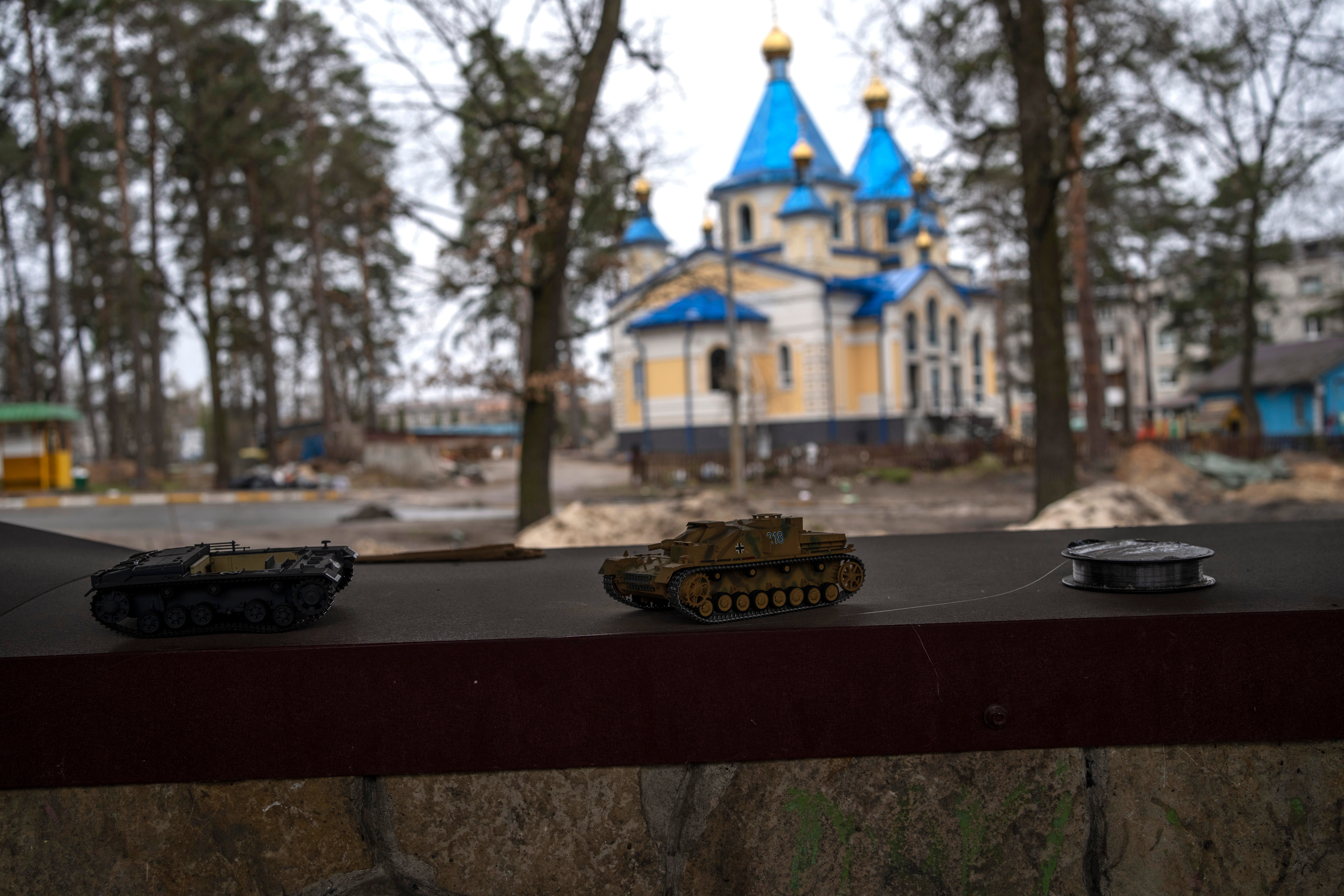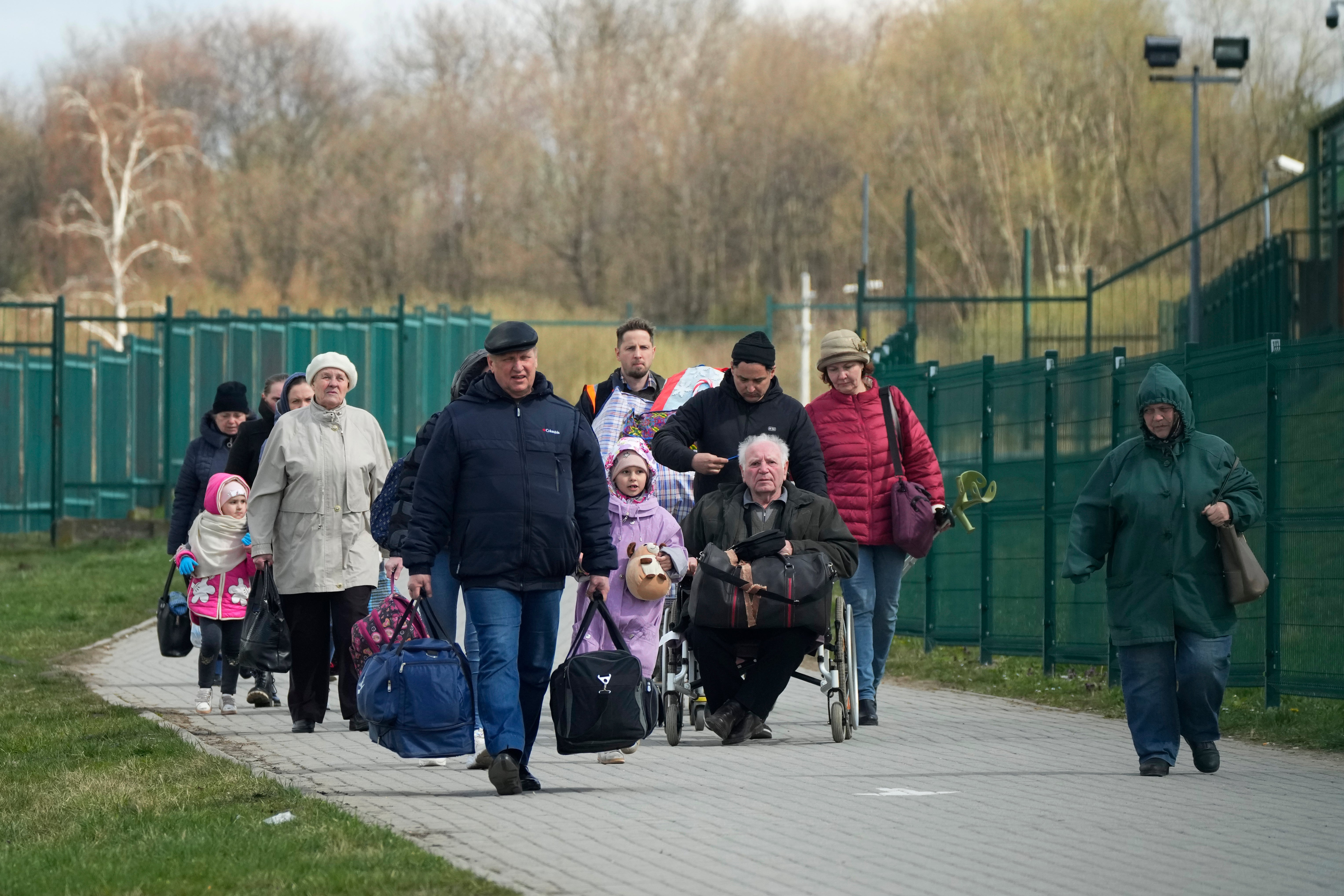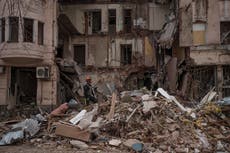Nearly two-thirds of Ukraine’s 7.5 million children have fled homes since Russian invasion, UN says
‘They have been forced to leave everything behind’, Unicef representative says
Nearly two-thirds of all Ukrainian children have been forced to flee their homes in the six weeks since Russian forces invaded, according to Unicef.
The UN children’s agency said 4.8 million of the country’s 7.5 million children had been uprooted by the fighting, describing the scale of displacement as “quite incredible”.
The warning came as the latest figures provided by Ukraine’s prosecutor general's office suggested 183 children had been killed and 342 injured during the conflict.

The UN has verified the deaths of 142 children and recoreded 229 as injured, although it says the actual numbers are likely to be much higher.
Since Vladimir Putin launched his invasion on 24 February, Russian forces have been accused of targeting civilians, including children, in a series of atrocities many experts say amounts to war crimes. The Kremlin denies this.
In Bucha, for example, where some of the worst atrocities are reported to have taken place, the Russians were said to have used a children's camp as an execution ground.
On a ledge near the summer camp entrance, an Associated Press reporter said Russian soldiers had placed a toy tank that appeared to be connected to fishing wire, a possible booby trap.

Unicef said on Monday that close to 3 million children still in the country need humanitarian assistance, while more than 4.5 million people – over 90 per cent of whom are women and children – have crossed into neighbouring countries as refugees.
"In just six weeks, nearly two-thirds of all Ukrainian children have been displaced,” said Unicef’s emergency programmes director Manuel Fontaine at a security council briefing on the humanitarian situation in Ukraine.
“They have been forced to leave everything behind: their homes, their schools, and often, their family members.”
Mr Fontaine said school closings were affecting the education of 5.7 million younger children and 1.5 million students in higher education.
The Unicef representative said he had heard stories of “desperate” parents having to send their children away from the front line with truck drivers.
In other parts of the country, he said children had been trapped among the fighting, with shortages of water, food and medical supplies.
"Of the 3.2 million children estimated to have remained in their homes, nearly half may be at risk of not having enough food,” he said.
“Attacks on water system infrastructure and power outages have left an estimated 1.4 million people without access to water in Ukraine. Another 4.6 million people have only limited access.”
“In my 31 years as a humanitarian, I have rarely seen so much damage caused in so little time.”

Ukraine's UN ambassador, Sergiy Kyslytsya, claimed Russia has moved more than 121,000 children out of Ukraine and had drafted a bill to accelerate adoption procedures for orphans and even those who have parents and other relatives.
He said that most of the children were removed from the besieged southern city of Mariupol and taken to eastern Donetsk and then to the Russian city of Taganrog.
Mr Fontaine said Unicef was aware of the reports, but had not been able to verify them.
Join our commenting forum
Join thought-provoking conversations, follow other Independent readers and see their replies
Comments


Bookmark popover
Removed from bookmarks